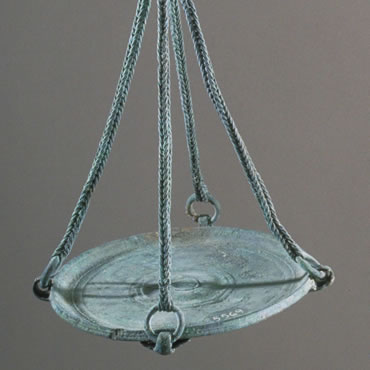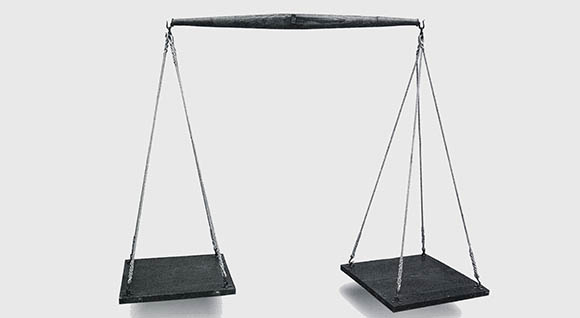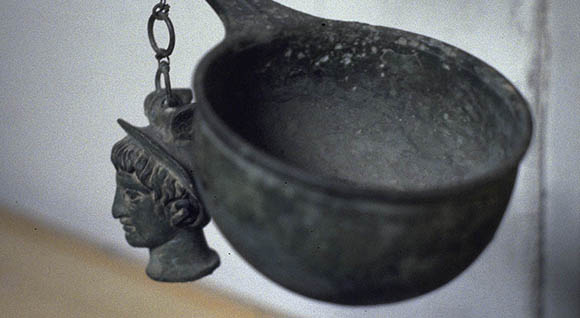1. Instruments for weighing

The weighing instruments found in Pompeii were used to carry out a wide range of activities: they were used by physicians, pharmacists, goldsmiths, potters, merchants, and peddlers. This led to diversification in the types of instruments available. The main difference is between balances and scales. While balances had been in use for some time in the Mediterranean area, the scale, which appeared in Campania towards the mid-4th century BC, became the typical weighing instrument of the Romans; the mechanical procedures by which it worked were also studied by the leading scientists of ancient times.
The weighing instruments that were found at Pompeii were used by doctors, pharmacists, goldsmiths, and merchants. Very common were the balances with equal arms; these included a scale with a small weight sliding along half of the beam, and scales for weighing coins. For voluminous goods there were large wooden balances with pans suspended by ropes.
While the scale with equal arms had been used commonly in the Mediterranean for a long time, the steelyard appeared in Campania only around the middle of the fourth century BC and eventually became the typical weighing instrument used by the Romans.
Made of bronze by experienced local craftsmen, the steelyard had unequal arms and a weight which slid along the longer one. This longer arm was marked with divisions into pounds and ounces. Sometimes the steelyard had hooks instead of pans.
The weights were lead with bronze coating, and were in the form of an acorn, or were figures representing divinities or individuals in the imperial family. An inscription on the beam of one steelyard notes that specified magistrates verified the regularity of the weights and the instrument.
A variant of the steelyard was the so-called casserole, which had a fixed weight at the end of the beam, and a moving hook.
- Provenance: Boscoreale, Villa rustica nel fondo D'Acunzo (13/3/1903)
- Date: First Century AD



